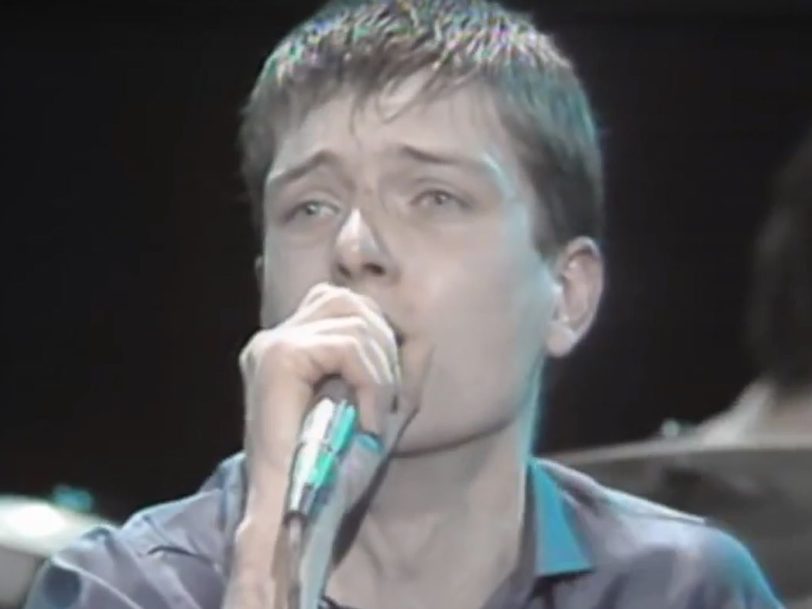Often imitated, but never bettered, Joy Division’s two studio albums, Unknown Pleasures and Closer, have long since set the band’s legend in stone. However, while this small, yet vital body of work charts their sonic progression from have-a-go punk wannabes to iconic post-punk league-leaders, their songs wouldn’t have the same impact without either Ian Curtis’ charismatic baritone or his estimable lyrics. Indeed, the best Ian Curtis lyrics boast a gravitas rarely observed in rock’n’roll.
While Curtis’ fondness for groundbreaking musical artists such as Iggy Pop, Kraftwerk and Throbbing Gristle is well-documented, less well known is his innate love of the broader literary spectrum which fuelled his trajectory as he morphed into of rock’s most singular lyricists. Those closest to him frequently refer to Curtis’ love of language. In his memoir, Record Play Pause, Stephen Morris wrote, “We were very lucky in having someone [like Ian] who not only wanted to be the singer, but also had the intelligence to write meaningful words,” while in a 2014 interview with The Observer, Curtis’ widow, Deborah, said, “Words meant such a lot to Ian – if he put a record on, we’d have to listen to absolutely everything. He used to talk about what the lyrics meant and the story behind them. He didn’t like songs that didn’t mean anything.”
Dedicated to his art, Ian Curtis was a prolific writer and, between 1977 and his tragic suicide in May 1980, he wrote reams of meaningful words, many of which still have the power to fascinate. In celebration of his immense talent, we pore over his back pages to select the ten best Ian Curtis lyrics.
Listen to the best of Joy Division here, and check out our ten best Ian Curtis lyrics, below.
10: No Love Lost
Ian Curtis was an avid reader throughout his short life, so it’s no surprise to discover Joy Division took their name from a book, The House Of Dolls, by Ka-Tzetnik (real name Yehiel Feiner). Despite its harrowing subject matter (concentration camps established by Hitler’s Nazis during World War II), the book’s paperback edition sold millions of copies, and Curtis even read a short passage from it during No Love Lost, the best track from Joy Division’s debut EP, An Ideal For Living. More importantly, while his group – still calling themselves Warsaw when the EP was recorded – were formulating their style at this stage, lines such as “To never see you show your age/To watch until the beauty fades” revealed that the best Ian Curtis lyrics would prove him to be a peerless wordsmith.




